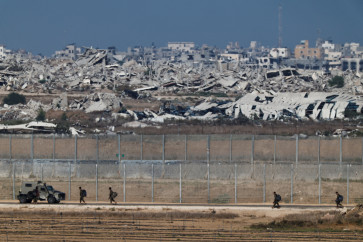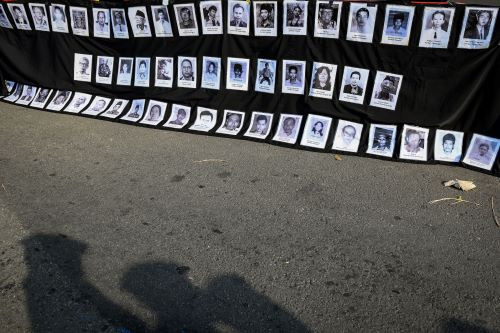Popular Reads
Top Results
Can't find what you're looking for?
View all search resultsPopular Reads
Top Results
Can't find what you're looking for?
View all search resultsEditorial: Controlling prostitution
Prostitution, either legalized or underground, has long been a reality and is big business in a great city like Jakarta
Change text size
Gift Premium Articles
to Anyone
P
rostitution, either legalized or underground, has long been a reality and is big business in a great city like Jakarta. A stroll along Jakarta's bustling downtown area at night and in other parts of the city clearly shows how robust the sex trade is.
Since a sex worker was killed, allegedly by one of her clients, in her boarding house in Tebet, South Jakarta, early in April, the city's residents have been embroiled in a debate over the possibility of regulating the practice. More recently, the Jakarta Police arrested members of an online prostitution ring consisting of a pimp and six sex workers, one of whom was underage and pregnant, at apartments in South Jakarta.
We are very sure media reports of covert prostitution only describe the tip of the iceberg, as evident in the rampant advertisements for sex services on the Internet or through text messages and by the power of the word of mouth.
With the practice going unchecked, certainly due to rising demand, its impacts have given cause for deep concern to many. Women from impoverished regions and children have become more vulnerable to forced prostitution. Meanwhile, fears about a spread of sexually transmitted diseases and HIV/AIDS are looming large as prostitution remains unfettered.
In a bid to offer a solution Jakarta Governor Basuki 'Ahok' Tjahaja Purnama pitched an idea of legalizing a red-light district. But later, following mounting opposition, he backed down from his controversial initiative, which in fact had been in place under then governor Ali Sadikin in the early 1970s.
Ahok said the localization plan was just a proposal. Residents, he believes, do not want prostitution near their neighborhoods.
The governor's turn-around simply proves how difficult it is for the city administration to deal with prostitution. On the one hand, it bears the responsibility of addressing prostitution so as to keep it under control and reduce its harmful impacts, which means it has to enforce a set of regulations. On the other hand, regulating prostitution easily fuels controversy because the administration will be accused of facilitating the sex industry.
During Ali Sadikin's tenure the city operated a 10-hectare red-light district, known as Kramat Tunggak, in Koja district in North Jakarta. Initially the red-light district was secluded, but as the business grew, one by one houses were built nearby. Then governor Sutiyoso closed the legendary Kramat Tunggak and turned it into an Islamic center in 1999.
Given the unimaginable impacts of clandestine prostitution, the Jakarta governor has to take action, although it may stir controversy. His inaction will not only leave the problem unsolved but will also exacerbate it.
Ahok rightly analogizes a red-light district as a toilet. 'If humans defecated on the street, it would stink everywhere. But humans defecate in toilets; it still stinks but at least it's done in the right place.'
If he finally has to reopen a red-light district, very strict regulations will be needed, such as declaring the area off limits to minors and requiring sex workers to undergo regular health checks.










